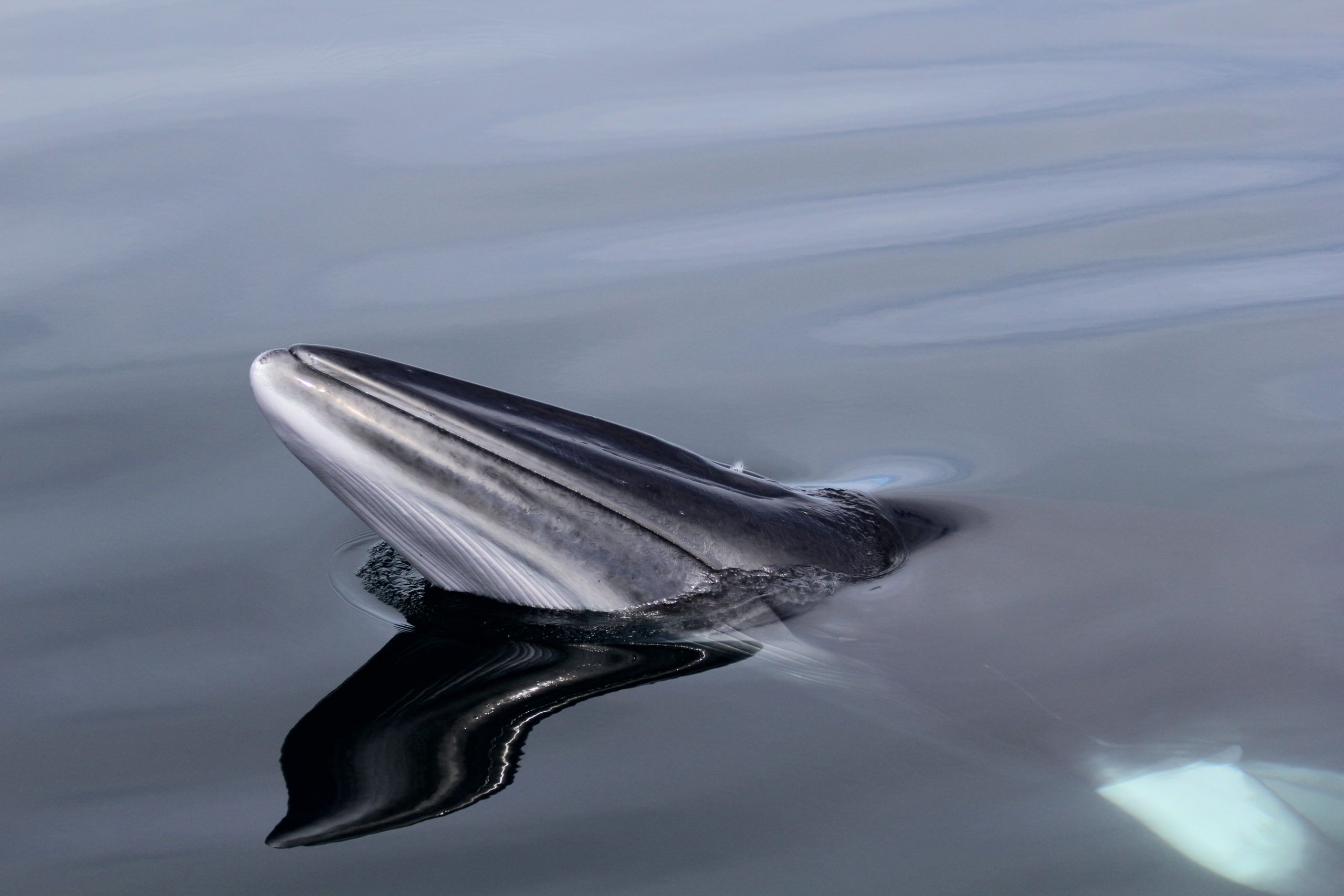Minke whales are the smallest and most frequently seen species of baleen whale found in Scottish waters. Although some are seen year-round, they are more regularly seen between May – October with some of the same individual whales known to return year after year. The same whales return year after year to feed on sandeels and other fish species such as herring and sprat. Some individuals have returned to important feeding grounds in the Hebrides every year for two decades.
UK waters are very important to European minke whales, an estimated 60% of the population is found here, yet information on distribution and habitat use is limited.
Action Needed
Continue to support efforts to reduce entanglements in fishing gear, including creels
Press for the implementation of effective management measures for the minke whale Marine Protected Areas in the Sea of the Hebrides and Southern Trench, Moray Firth.
Support long-term monitoring and research to meet the requirements of the Habitats Directive Article 11, and provide the evidence needed to inform conservation and management decisions.
Support research efforts to better understand minke whale distribution and habitat use, behaviour and threats (i.e. underwater noise, entanglement, climate change).
Support the implementation of the Scottish Biodiversity Strategy; specifically:
- Expand Scottish marine protected areas by 30% by 2030
- Increase the number of sites in Scotland’s Marine Protected Area network with specific fisheries management measures, and designate at least 10% of Scotland’s seas as Highly Protected Marine Areas
- Invest in nature – implementation of Biodiversity Investment plan
Threats
In Scottish waters, nearly half of all minke whales that strand show signs of entanglement in fishing ropes and lines. Marine debris can also result in entanglement causing injury. Prey depletion (including sand eels) is a considerable concern. Other threats include noise pollution and disturbance from military, seismic, and offshore development activities, commercial whaling , and as our seas get busier, ship strikes and disturbance from recreational water users is having an increased impact. As with all species of cetacean, the unknown impacts of climate change on them, their prey and the habitats on which they rely, is an overarching concern. All threats however are cumulative and should not be seen in isolation.
MSP Nature Champion




